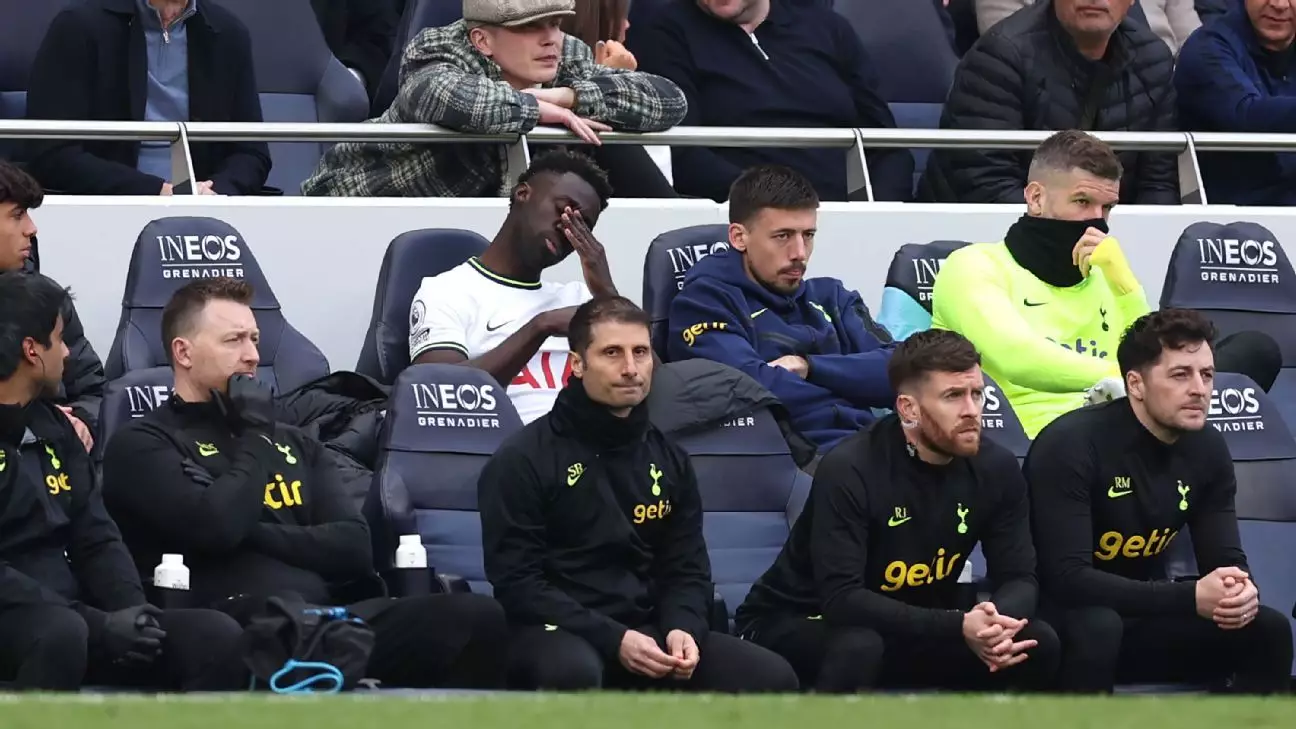In the contemporary arena of sports marketing, sponsorship agreements serve as vital lifelines for clubs, providing essential revenue streams while aligning brands with successful teams. However, as we witness the evolving dynamics of major corporate entities, the stability of these partnerships is increasingly in question. A notable case is the ongoing negotiations between INEOS, the co-owners of Manchester United, and Tottenham Hotspur regarding their sponsorship deal for the promotion of the Grenadier SUV. Initially established in 2022, this five-year agreement is now under scrutiny in light of INEOS’s recent strategic shifts.
As sources reported, INEOS is contemplating an early exit from its sponsorship contract with Tottenham. The petrochemical company’s decision stems from a broader effort to scale back its involvement across various sports, a tactic underscored by their recent legal disputes with New Zealand Rugby. This litigation arose after INEOS sought to terminate a lucrative £3.7 million-per-year sponsorship, which was set to last until 2027, citing market conditions shaped by the “deindustrialisation of Europe” as a contributing factor. Such developments indicate a significant contraction in INEOS’s sports investment strategy.
This move from INEOS is not occurring in isolation. The company also recently severed ties with Sir Ben Ainslie’s America’s Cup team, initially part of a partnership designed to bolster INEOS’s image in competitive sailing. Ainslie’s surprise at this decision raises questions about the long-term vision and coherence of INEOS’s sports endorsements. The growing discontent within the company and their public exit from lucrative contracts suggest a defensive posture, mirroring broader economic pressures brought on by shifts in energy markets and corporate priorities.
The ramifications of these sponsorship changes extend to Manchester United itself, where the club is grappling with serious financial challenges. Following the announcement of their quarterly financial results, it became evident that Manchester United has experienced a staggering decline in operating profits, plummeting from £27.5 million to a mere £3 million in a year-over-year comparison. The leadership decisions, including the costly contract given to Erik Ten Hag followed by his dismissal after just nine matches—amounting to a £10.4 million expenditure—have exacerbated these financial woes.
As INEOS marks one year in partnership with Manchester United, the trajectory of both the club and the company remains closely intertwined. With ongoing discussions to potentially terminate the Tottenham sponsorship agreement and reevaluate their overall investment in sports, the future is uncertain. This moment serves as a crucial juncture, requiring both INEOS and Manchester United to reassess their strategies and align their objectives amidst an increasingly challenging economic landscape. The need for prudent financial management and strategic foresight has never been clearer, as stakeholders from both parties brace for forthcoming changes in their operational realities.

